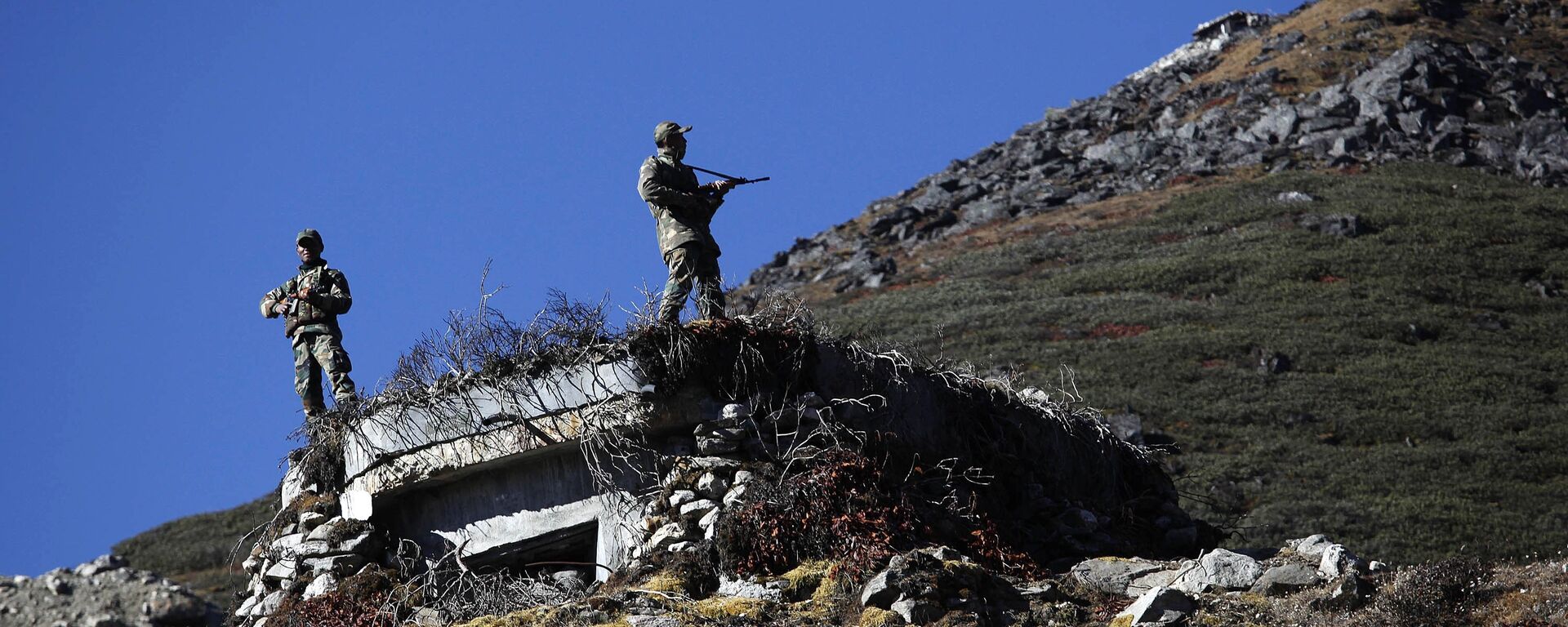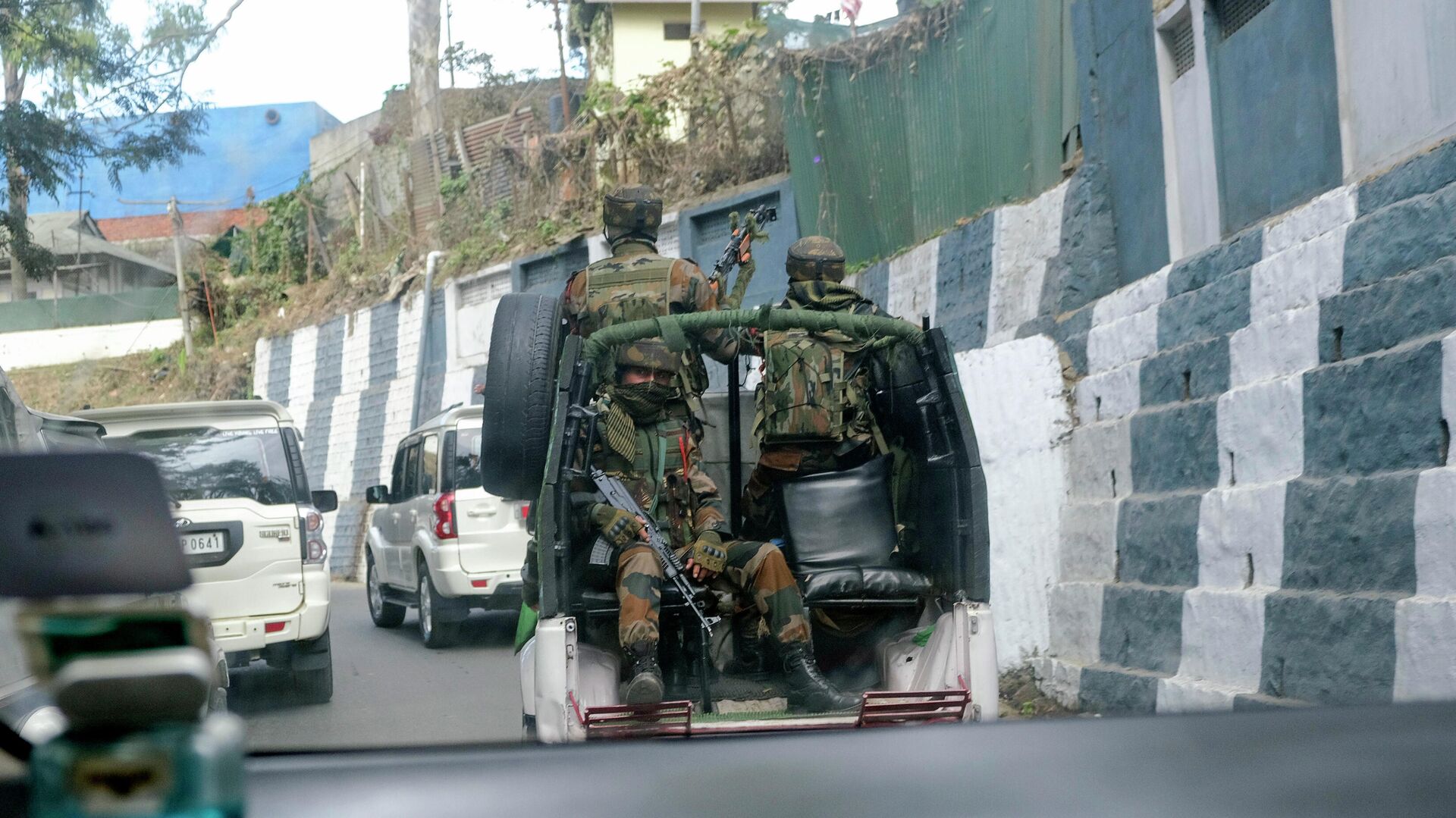https://sputnikglobe.com/20211216/thousands-hold-protests-demanding-withdrawal-of-indian-army-from-remote-nagaland-province-1091570783.html
Thousands Hold Protests Demanding Withdrawal of Indian Army from Remote Nagaland Province
Thousands Hold Protests Demanding Withdrawal of Indian Army from Remote Nagaland Province
Sputnik International
Tensions have erupted following the death of 14 civilians in botched security ops in Nagaland, a "disturbed area" near China and Myanmar. The decades-long... 16.12.2021, Sputnik International
2021-12-16T13:18+0000
2021-12-16T13:18+0000
2022-07-19T10:41+0000
kashmir
narendra modi
insurgency
indian army
union naga council
nagaland
https://cdn1.img.sputnikglobe.com/img/07e5/0c/06/1091281067_0:195:3295:2048_1920x0_80_0_0_6a4336e9d8811418e00f89b6a7426c78.jpg
Thousands of people in five districts of India's Nagaland state marched on Thursday, declaring "full non-cooperation" with the armed forces and boycotting "all nationwide celebrations" against the recent killings of 14 civilians in a botched counter-insurgency operation.The protests shut down the local government and private offices. The Eastern Nagaland Peoples' Organisation (ENPO), the apex tribal body representing Konyaks, Phoms, Changs, Khiamniungans, Yimchungrus, and Sangtams ethnicities, called for the "Bandh" (shutdown).The ENPO has put forth a range of demands before the federal government, including withdrawal of the controversial Armed Forces (Special Powers) Act, 1958 and an apology from federal Home Minister Amit Shah over his parliamentary statement claiming forces opened fire on civilians in self-defence.The organisation said in a statement that Nagas are "fed up of living under the draconian law that dehumanises people."The Konyak Naga tribe has also called for total restriction of Indian Military patrols within Mon District, where the elite military commando unit shot six coal miners while returning to their homes, believing them to be insurgents. Later, troops killed another eight people during a confrontation with the furious crowd. The highly influential Konyak has also directed customary landowners to denounce past land agreements allotted to set up military base camps in the district.The AFSPA, enacted in insurgency infested areas, empowers the army and central paramilitary forces to kill anyone acting in contravention of law, as well as arrest and search any premises without a warrant and provide cover to forces from prosecution and legal suits. AFSPA has been operational in the seven northeastern states that share borders with China, Myanmar, and Bangladesh, and in Jammu and Kashmir union territory, where secessionist sentiments are high.After years of resistance against British rule, Naga – comprising several tribes – declared Nagaland an independent state on 14 August, 1947. The Indian government passed a special law called AFSPA and sent forces to the areas to crush the insurgency in 1958. The armed ethnic groups have not shunned their demand for a sovereign state so far.
https://sputnikglobe.com/20190103/india-civilian-military-tesions-arunachal-1071192456.html
kashmir
nagaland
Sputnik International
feedback@sputniknews.com
+74956456601
MIA „Rossiya Segodnya“
2021
Rishikesh Kumar
https://cdn1.img.sputnikglobe.com/img/07e4/08/04/1080055820_0:0:388:389_100x100_80_0_0_40018ee210946d65d49ffba4f4c008e1.jpg
Rishikesh Kumar
https://cdn1.img.sputnikglobe.com/img/07e4/08/04/1080055820_0:0:388:389_100x100_80_0_0_40018ee210946d65d49ffba4f4c008e1.jpg
News
en_EN
Sputnik International
feedback@sputniknews.com
+74956456601
MIA „Rossiya Segodnya“
Sputnik International
feedback@sputniknews.com
+74956456601
MIA „Rossiya Segodnya“
Rishikesh Kumar
https://cdn1.img.sputnikglobe.com/img/07e4/08/04/1080055820_0:0:388:389_100x100_80_0_0_40018ee210946d65d49ffba4f4c008e1.jpg
kashmir, narendra modi, insurgency, indian army, union naga council, nagaland
kashmir, narendra modi, insurgency, indian army, union naga council, nagaland
Thousands Hold Protests Demanding Withdrawal of Indian Army from Remote Nagaland Province
13:18 GMT 16.12.2021 (Updated: 10:41 GMT 19.07.2022) Tensions have erupted following the death of 14 civilians in botched security ops in Nagaland, a "disturbed area" near China and Myanmar. The decades-long insurgency was not crushed despite the 1958 Armed Forces Special Powers Act (AFSPA), allowing security forces to kill anyone violating the law.
Thousands of people in five districts of India's Nagaland state marched on Thursday, declaring "full non-cooperation" with the armed forces and boycotting "all nationwide celebrations" against the recent killings of 14 civilians in a botched counter-insurgency operation.
The protests shut down the local government and private offices.
The Eastern Nagaland Peoples' Organisation (ENPO), the apex tribal body representing Konyaks, Phoms, Changs, Khiamniungans, Yimchungrus, and Sangtams ethnicities, called for the "Bandh" (shutdown).
The ENPO has put forth a range of demands before the federal government, including withdrawal of the controversial Armed Forces (Special Powers) Act, 1958 and an apology from federal Home Minister Amit Shah over his parliamentary statement claiming forces opened fire on civilians in self-defence.
The organisation said in a statement that Nagas are "fed up of living under the draconian law that dehumanises people."
The Konyak Naga tribe has also called for total restriction of Indian Military patrols within Mon District, where the elite military commando unit
shot six coal miners while returning to their homes, believing them to be insurgents.
Later, troops killed another eight people during a confrontation with the furious crowd.

3 January 2019, 13:47 GMT
The highly influential Konyak has also directed customary landowners to denounce past land agreements allotted to set up military base camps in the district.
The AFSPA, enacted in insurgency infested areas, empowers the army and central paramilitary forces
to kill anyone acting in contravention of law, as well as arrest and search any premises without a warrant and provide cover to forces from prosecution and legal suits.
AFSPA has been operational in the seven northeastern states that share borders with China, Myanmar, and Bangladesh, and in Jammu and Kashmir union territory, where secessionist sentiments are high.
After years of resistance against British rule, Naga – comprising several tribes – declared Nagaland an independent state on 14 August, 1947.
The Indian government passed a special law called AFSPA and sent forces to the areas to crush the insurgency in 1958. The armed ethnic groups have not shunned their demand for a sovereign state so far.



